Submitted by WA Contents
Foster+Partners and Branch Technology’s modular habitat successfully passed Level 1 by NASA
United States Architecture News - May 11, 2017 - 13:16 13693 views
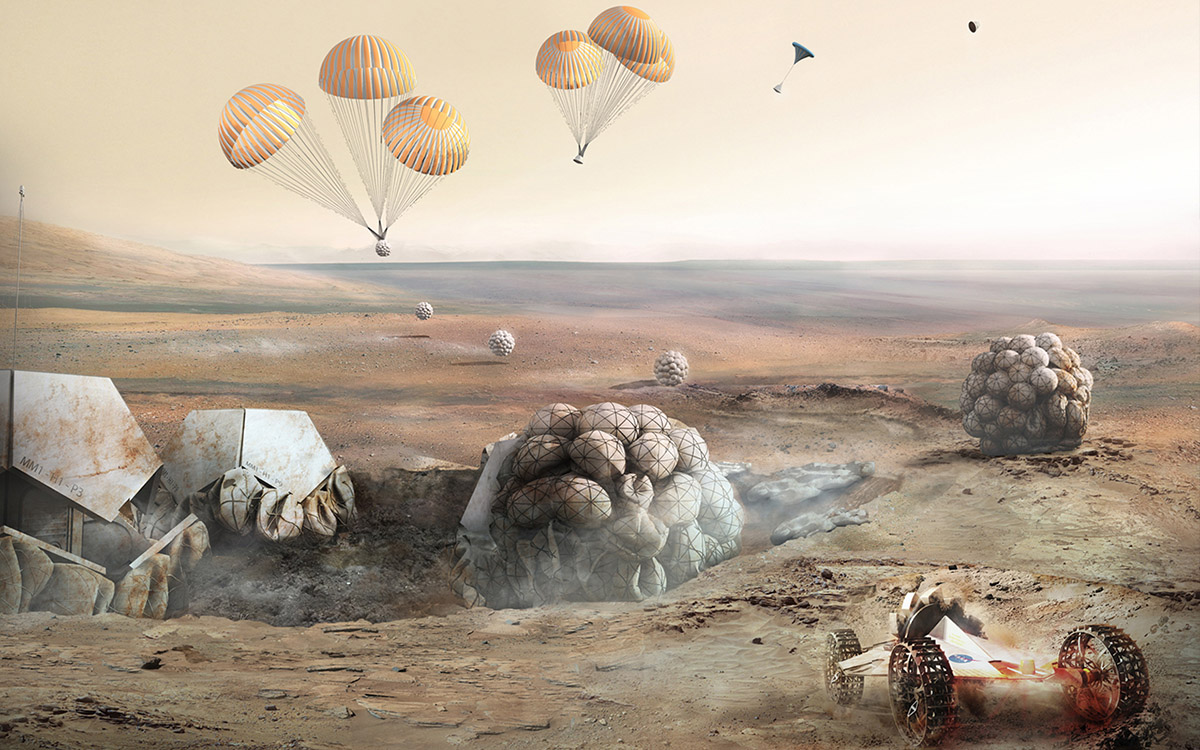
Foster + Partners and Branch Technology have won the first prize in the NASA 3D-Printed Habitat Challenge's Phase 2: Level 1 Compression Test Competition, organized by NASA and Bradley University.
In 2015, Foster + Partners' modular habitat proposal had been shortlisted amongst 30 finalists for the 3D Printed Habitat Challenge to create a settlement on Mars constructed by an array of pre-programmed, semi-autonomous robots prior to the eventual arrival of the astronauts and the studio won the second-prize for its proposal. NASA and its partners' $2.5 million-budget project has now move forwarded and selected the winner who achieves to pass Level 1, Compression Test among seven teams.
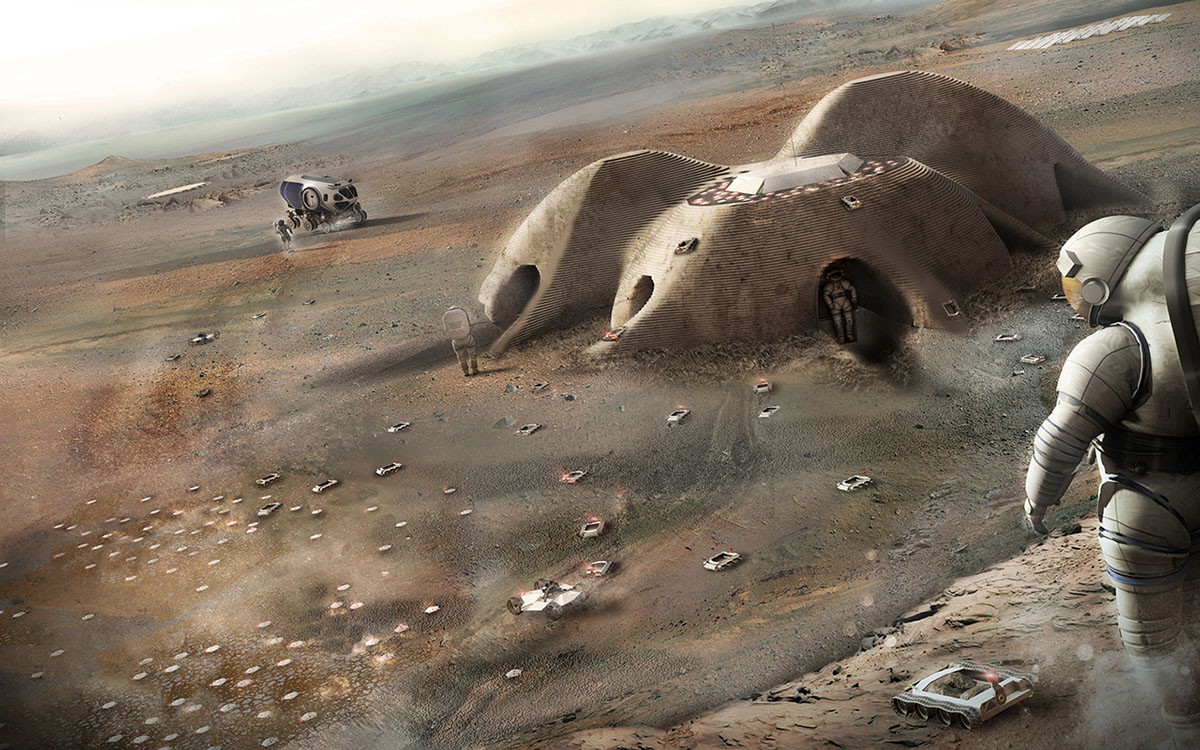
NASA 3D-Printed Habitat Challenge's competition envisions new settlements where autonomous machines will help construct extra-terrestrial shelters for human habitation. The competition aims at the development of new technologies that advance fabrication capabilities on Earth.
"While the final shelter will be a complex assembly of smaller building elements, the focus through the various stages of the challenge is to design and test individual prototypical building elements that can help demonstrate the suitability of the entire process from manufacture to construction and structural performance," said Foster + Partners.
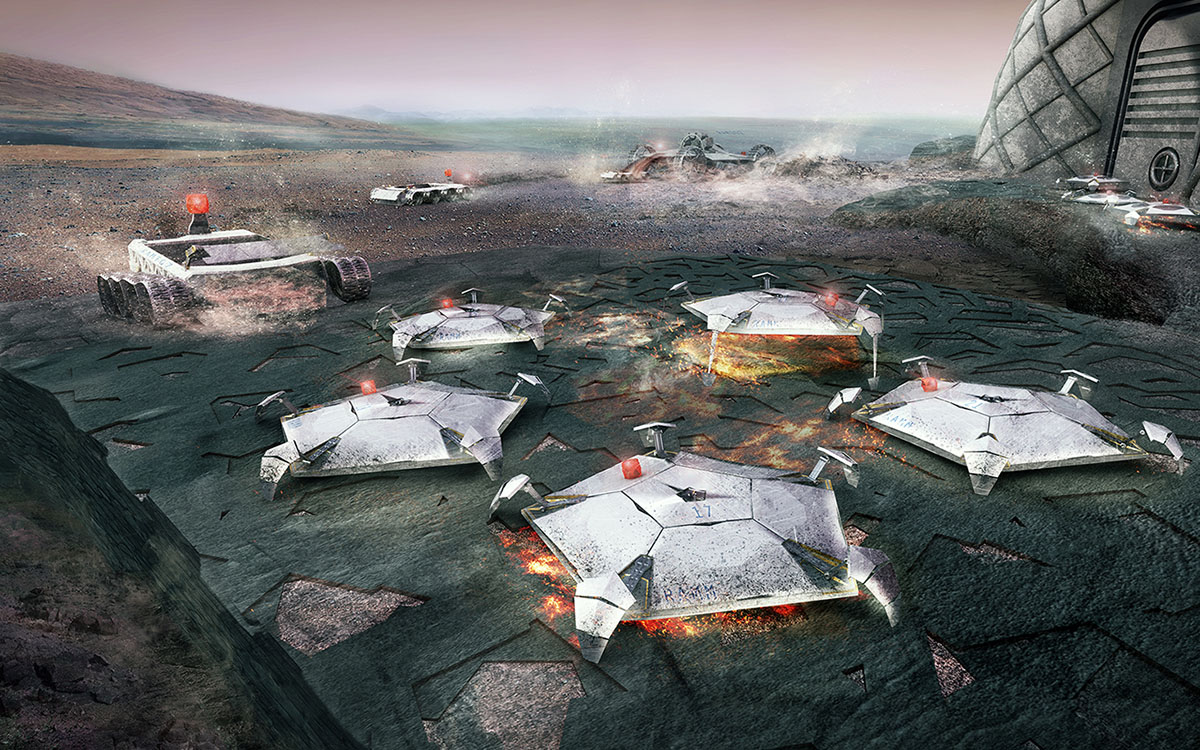
In this stage of the competition, teams were asked to use recycled mission materials and indigenous Martian regolith (soil) together to 3D-print a truncated cone and a cylinder, which were then subjected to compression testing to assess their suitability as structural components.
Foster + Partners is now working on the new engineering geometry of the structures, while Branch Technology is embodying the structure with 3D-printing materials and methods to the project.
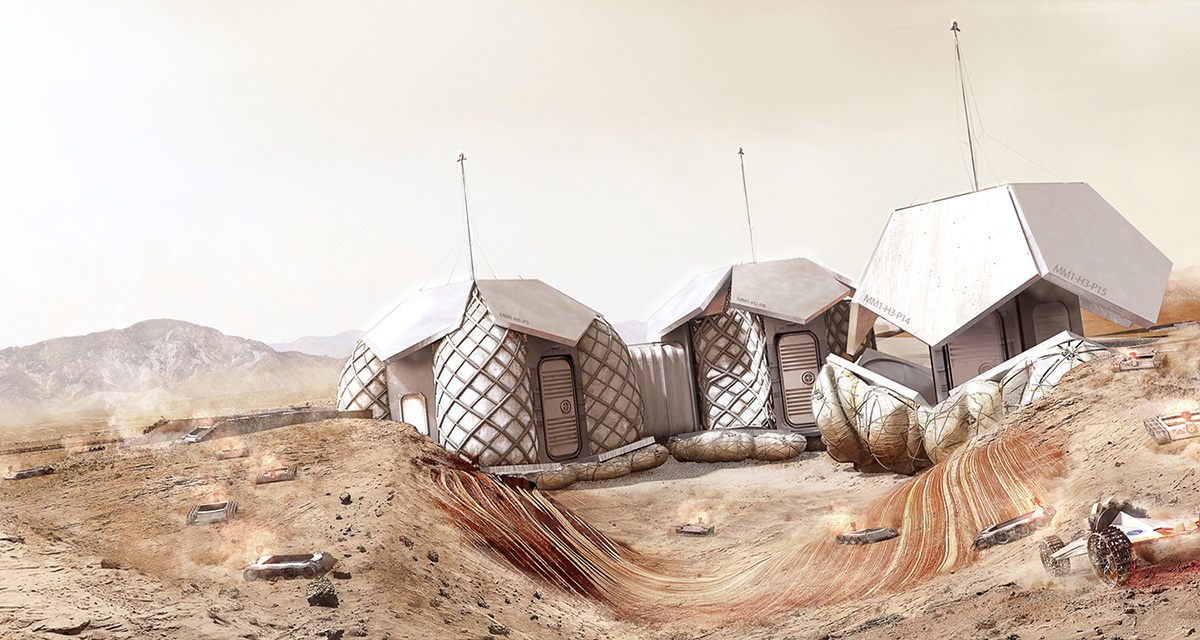
NASA 3D-Printed Habitat Challenge's Phase 2 competition is divided into three stages, each focusing on a different structural challenge. The team will submit their entries for Phase 2, Level 2 competition until May 31, 2017.
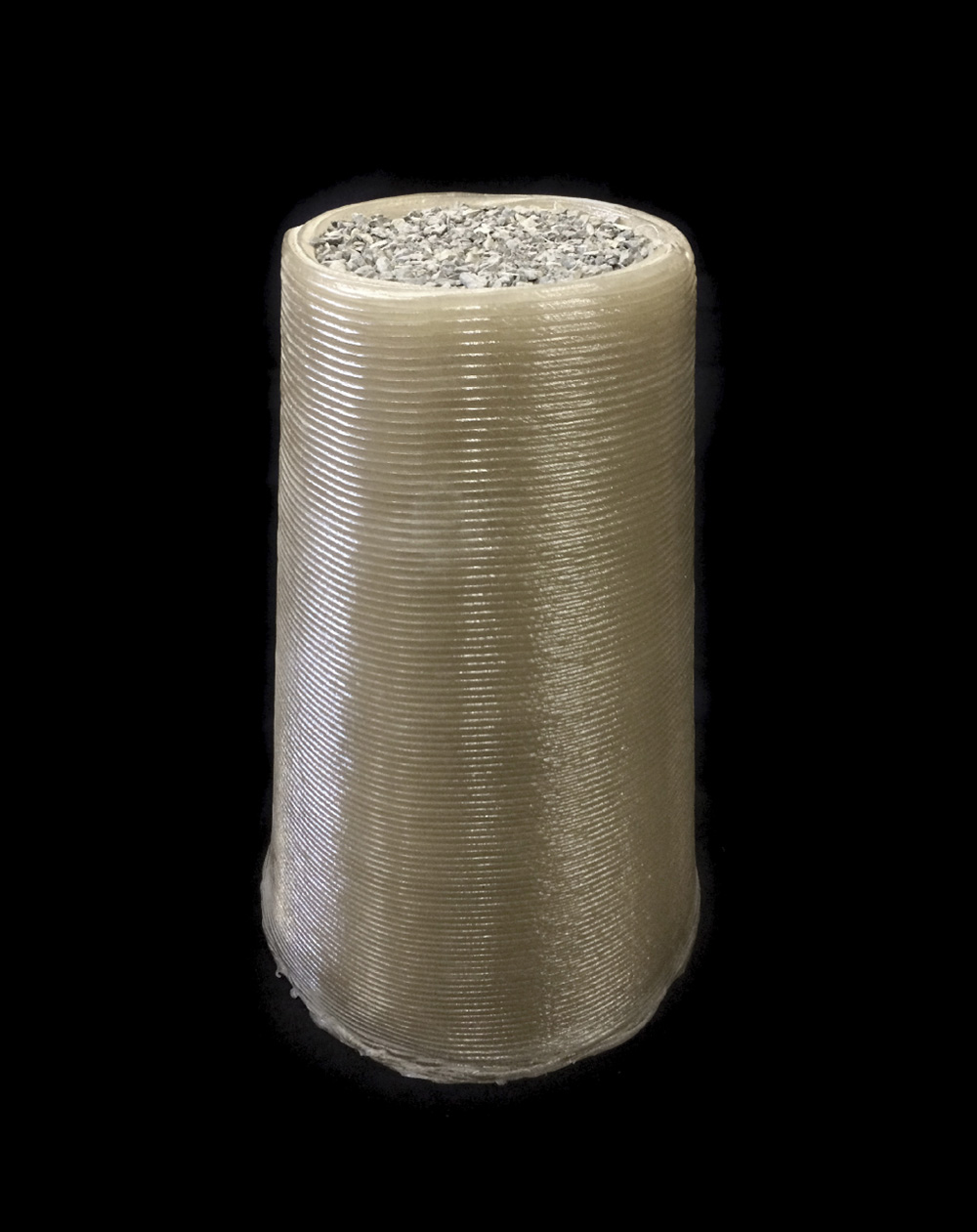
This cone was 3D-printed by the Foster + Partners | Branch Technology team for the Level 2, Phase 1 Compression Test Competition of NASA’s 3D-Printed Habitat Competition. Foster + Partners scored the most points for this stage, and was awarded $85,930. Image Courtesy of Foster + Stearns | Branch Technology
According to NASA 3D-Printed Habitat Challenge, Phase 3 is currently under development and will focus on fabrication of complete habitats and will follow completion of Phase 2.
Foster + Partners and Branch Technology developed optimized solutions that are specifically designed for the complexities of space travel, each of the proposals balances cost, weight, and structural performance against the stringent requirements of the long-term goal of extra-terrestrial habitation.

Image Courtesy of Foster + Stearns | Branch Technology
The teams were awarded higher points for proposals that maximize the use of local resources/mission waste and marked down for proposals that rely on water and imported construction materials and they have been awarded with $85,930 prize.
In the test competition, University of Alaska, Fairbanks won second-prize, and other five teams were Bubble Base from Winston-Salem, North Carolina; Pennsylvania State University of University Park; CTL Group Mars from Skokie, Illinois; ROBOCON of Singapore; and Moon X Construction from Seoul, South Korea.
Founded in 2014, Branch Technology combines novel 3D printing technology, conventional construction materials, and large-scale robotics to build in a new way.
All images courtesy of Foster+Partners (except last two images)
> via Foster+Partners